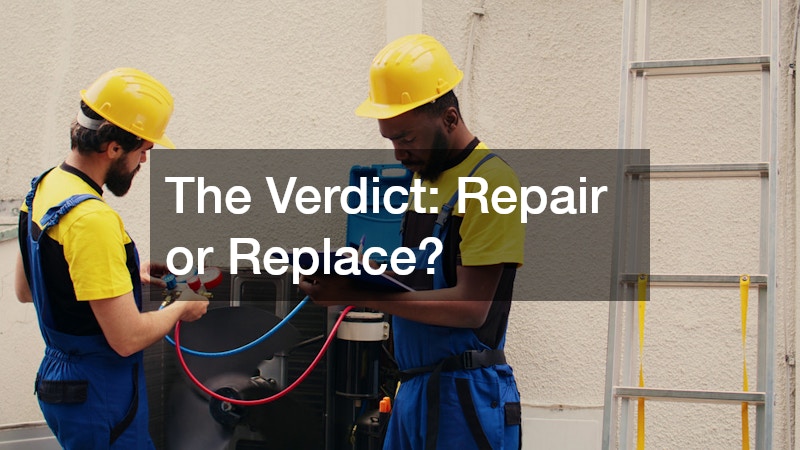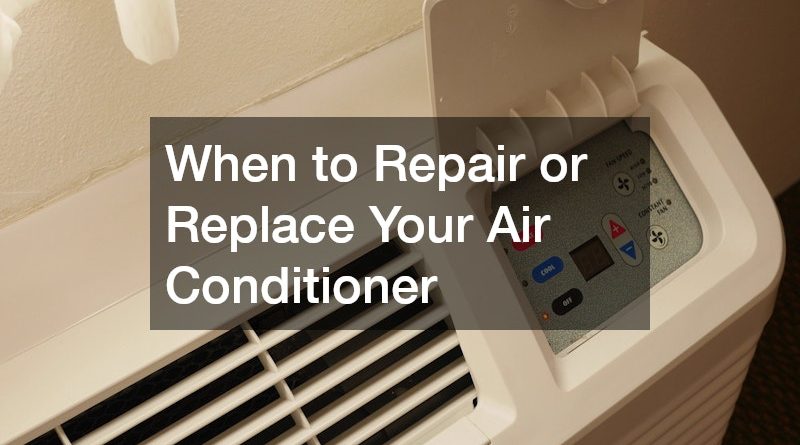When to Repair or Replace Your Air Conditioner
Australia’s climate can be unforgiving—scorching summers, warm autumns and humid conditions that stretch well beyond the traditional seasons. A functioning air conditioner isn’t a luxury; it’s a necessity for indoor comfort. But what happens when your unit starts making strange noises, stops cooling efficiently or refuses to turn on altogether? One of the most common dilemmas homeowners face is whether to repair or replace their air cooling system.
Making the right decision depends on several factors, including cost, energy efficiency and the unit’s overall condition.
Recognising the Warning Signs
The first step in determining whether to repair or replace your cooling unit is understanding the symptoms of a failing unit. Common warning signs include insufficient cooling, unusual sounds, foul odours, water leaks or rising electricity bills. While some of these issues may be resolved with a simple service or part replacement, others indicate deeper problems.
For instance, an air cooling unit that struggles to maintain the set temperature despite running constantly might be dealing with a failing compressor or refrigerant leak. These problems often require costly repairs, and depending on the age and efficiency of the system, replacement might offer better long-term value.
Age Matters
As with most mechanical equipment, age plays a pivotal role in performance. If your air cooling system is over 10–15 years old, it may not be worth the investment to keep repairing it. Older units tend to be less energy efficient and are more likely to break down repeatedly, especially if they haven’t been maintained regularly. Furthermore, sourcing replacement parts for older models can be difficult and expensive.
In contrast, modern air coolers offer advanced technology, better energy ratings and eco-friendlier refrigerants. If your system is approaching the end of its lifespan and requires significant work, opting for a newer model can offer both comfort and savings in the long run.
Consider the Cost of Repairs
One useful rule of thumb when deciding between repair and replacement is the “$5,000 rule”: multiply the cost of the repair by the age of the unit. If the total exceeds $5,000, replacement is generally the more economical choice. For example, if your 10-year-old air conditioner requires a $600 repair, the total is $6,000—indicating it may be wiser to invest in a new system.
It’s also important to consider the frequency of breakdowns. A one-off repair is typically manageable, but recurring issues signal that your air cooling system may be on its last legs. In such cases, replacing the system could save you the frustration and cumulative costs of ongoing repairs.
Energy Efficiency & Running Costs
Energy efficiency is a crucial factor for Australian households mindful of rising electricity prices. Older air coolers generally have lower star ratings and consume more power. Replacing an inefficient unit with a high-efficiency model can significantly reduce your energy bills. Look for models with a high Energy Star rating and inverter technology, which adjusts the compressor speed to maintain a consistent temperature without cycling on and off.
Not only do energy-efficient units offer financial savings, but they also reduce your carbon footprint—an increasingly important consideration for environmentally conscious homeowners.
Comfort & Indoor Air Quality
Your air cooling system does more than cool the air—it also helps regulate humidity and filter dust and allergens. If your current system is struggling to keep up or causing dry air, mould issues or poor airflow, it may be negatively impacting your health and comfort.
Modern systems come equipped with improved filtration systems, quieter operation and even smart controls that let you manage temperatures remotely via smartphone apps. Upgrading can vastly improve your home’s indoor air quality and provide greater control over your living environment.
The Verdict: Repair or Replace?

Ultimately, the decision to repair or replace your air cooling system depends on a mix of factors: age, cost of repairs, energy efficiency and personal comfort preferences. If your unit is relatively new, well-maintained, and the repair cost is minor, a fix is likely sufficient. However, if it’s older, inefficient and requiring frequent attention, replacement could be the more economical and sustainable choice.
When in doubt, consult a licensed HVAC technician. They can assess the condition of your system, estimate repair costs and help you compare potential replacement options. Making an informed decision ensures you get the most value from your investment, whether that means extending the life of your current system or upgrading to a more efficient model.
Living in Australia means relying heavily on your air conditioner, especially during the warmer months. Knowing when to repair or replace it is essential for maintaining a comfortable and energy-efficient home. By weighing the costs, considering the system’s age and performance and acting before extreme temperatures arrive, you’ll be well-prepared to make the best decision for your comfort and your budget.
